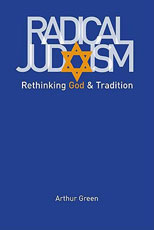"How do we hear and preach God's word in this very different age?
"Through most of our history, oppressed Jews seem to have lived by a narrowly crafted version of the principle of Rabbi Akiva, loving and caring for 'our own' while paying greater or lesser lip service to Ben Azzai's universal human values. Most later Jewish legal authorities suggest that we should treat Gentiles as well as we do Jews for the sake of 'the ways of peace,' which essentially means 'in order to avoid anti-Semitism.' We recognize the full humanity of Gentiles, that is, so that they will, one hopes, recognize ours. Much of this in-group thinking can be attributed, of course, to the long centuries of persecution Jews suffered, when those in power neither saw nor treated us as fully human. Our natural response was self-protection, a turning inward to our own moral 'neighborhood,' as it were, and living on a moral island.
"In our day this self-isolation will no longer do. There is no threat of persecution that requires it. The time calls out for a Judaism appropriate to the new reality. The defensive medieval or shtetl reflexes no longer speak to the reality of our current situation. Naturally, the terrible experience of the Holocaust reawakened these reflexes, and all too much of Jewish public policy in recent decades has been determined by them. But these reactions are not the best that our tradition has to offer. They are not what the world needs of us in this hour.
"In some vague and undirected ways we do see the Jewish witness to the need for change articulating itself. Bearers of Jewish names are prominent in all the Western movements for civil and human rights as well as for environmental protection. Some who carry those names are directly inspired by Jewish teaching; others, perhaps a majority, carry with them only a vague and highly secularized version of Jewish tribal memory, especially the memory of persecution. Cognizant of their own ancestors' sufferings, they seek to avoid such a fate for others. The fact that large majorities of American Jews, despite their rising economic fortunes, continue to support liberal and generous programs of social welfare also speaks to the ongoing subtle proclamation of our truth. The prominence of Jews in antiwar activities, in environmentalist groups, and in other causes that seek to benefit humanity and the planet, all point in the same direction. The memory of slavery and liberation from Egypt is carved deeply in our souls, more deeply than we can see.
"We need a Judaism that will speak fully to the values of these Jews, among whom I count myself. Caring for the needy and raising the banner of human dignity are mitzvoth, part of what we are most essentially obliged to do as Jews. So too are protection of the planet and concern for future generations. We do them not because they are au courant or represent the best of liberal politics; we do them because they are the very foundation of Torah, the teaching of Ben Azzai applied to the new circumstances of the twenty-first century. Such a positive and assertive diaspora Judaism must apply itself to universal human questions and to the contemporary human situation. Of course, its responses will be in the language and symbols of our own tradition, presented richly and without diminution. These will require 'translation' both for Jews and for non-Jews who do not speak their language, but that is precisely what the theologian is here to do."
